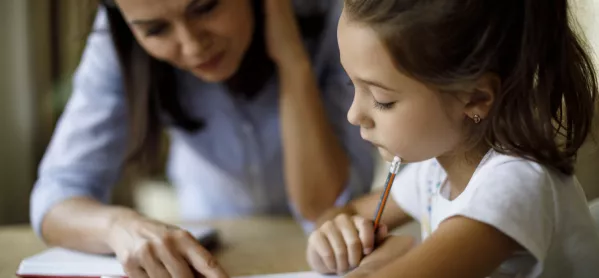Pupils in P1 and S1 among worst hit by Covid lockdown

Children in the early years of primary and those starting secondary were most likely to see a negative impact on their progress as a result of the move to online learning during the first national lockdown, finds a new report.
The findings are contained in the Scottish government’s new “equity audit”, designed to deepen understanding of the impact of the coronavirus pandemic on children from disadvantaged backgrounds.
The audit, published yesterday, states that, while lockdown had a “negative impact on the progress of most young people”, the hardest hit were: those at certain ages and stages, disadvantaged children, and children who speak English as an additional language.
Also today: Fears over ‘Big Brother’ remote-learning inspections
Remote learning: 8 key points on inspections and funds
The first lockdown: What was life really like for pupils in lockdown?
Long read: We need to wake up to teenage sleep problems
The audit - which involved engagement with 54 schools - says “most school staff” stated that the negative impact of the closure of school buildings was evident to the greatest extent in younger children, with the progress of children in P1 and P2 being “most notably affected”.
The teachers put this down, in part at least, to “the challenge of replicating routines and teaching approaches online”, including “the structured repetition required for early level reading and writing”.
One teacher said that the period of remote learning had led to “a massive gap for the pupils who were in P1, now in P2”.
The teacher added: “They missed that golden period of learning to read.”
The audit states: “Children in the early years of primary or those starting secondary were most likely to see a negative impact on their progress.”
The “majority of teachers” also said that higher numbers of children from socio-economically disadvantaged backgrounds showed “regression in core literacy and numeracy skills” when schools reopened to all pupils after the summer.
The teachers said the pupils struggled to “absorb new information and regain prior levels of independence and engagement”, and reported the number on track to achieve appropriate levels of attainment for their age and stage had “fallen significantly”.
The audit states: “Most participants reported that the period of remote learning has had a negative impact on the progress of most children and young people. However, this is a complex picture, with the impact on learning disproportionately affected by the age, stage, English language proficiency and socio-economic status of children and young people.”
The report also found that, during lockdown, school closures had been “a catalyst for an increase in mental health concerns among children and young people” - but there was also agreement that it had had an impact on some children’s physical health.
“Some examples include significant weight loss due to increased anxiety, loss of all routines, and in a few individual cases, a regression in toileting habits,” states the report. For some secondary students, it became normal “to sleep all day and not engage in learning until the evening, if at all”.
The audit highlights action that schools had taken to minimise the impact of lockdown, including increasing communication with families. They also provided digital equipment and internet connectivity solutions, as well as learning packs to supplement online learning.
One positive to come out of the move to remote learning for some schools was that - through more regular contact - relationships improved with some families.
The audit said that “parents valued the care shown and recognised that relationships between home and school have improved as a result of the increased contact”.
It also found, however, that children would have liked “more opportunities for live interactions with their teachers”.
The report said: “Children and young people missed the opportunity to be able to ask questions and seek support from them face to face.”
You need a Tes subscription to read this article
Subscribe now to read this article and get other subscriber-only content:
- Unlimited access to all Tes magazine content
- Exclusive subscriber-only stories
- Award-winning email newsletters
Already a subscriber? Log in
You need a subscription to read this article
Subscribe now to read this article and get other subscriber-only content, including:
- Unlimited access to all Tes magazine content
- Exclusive subscriber-only stories
- Award-winning email newsletters